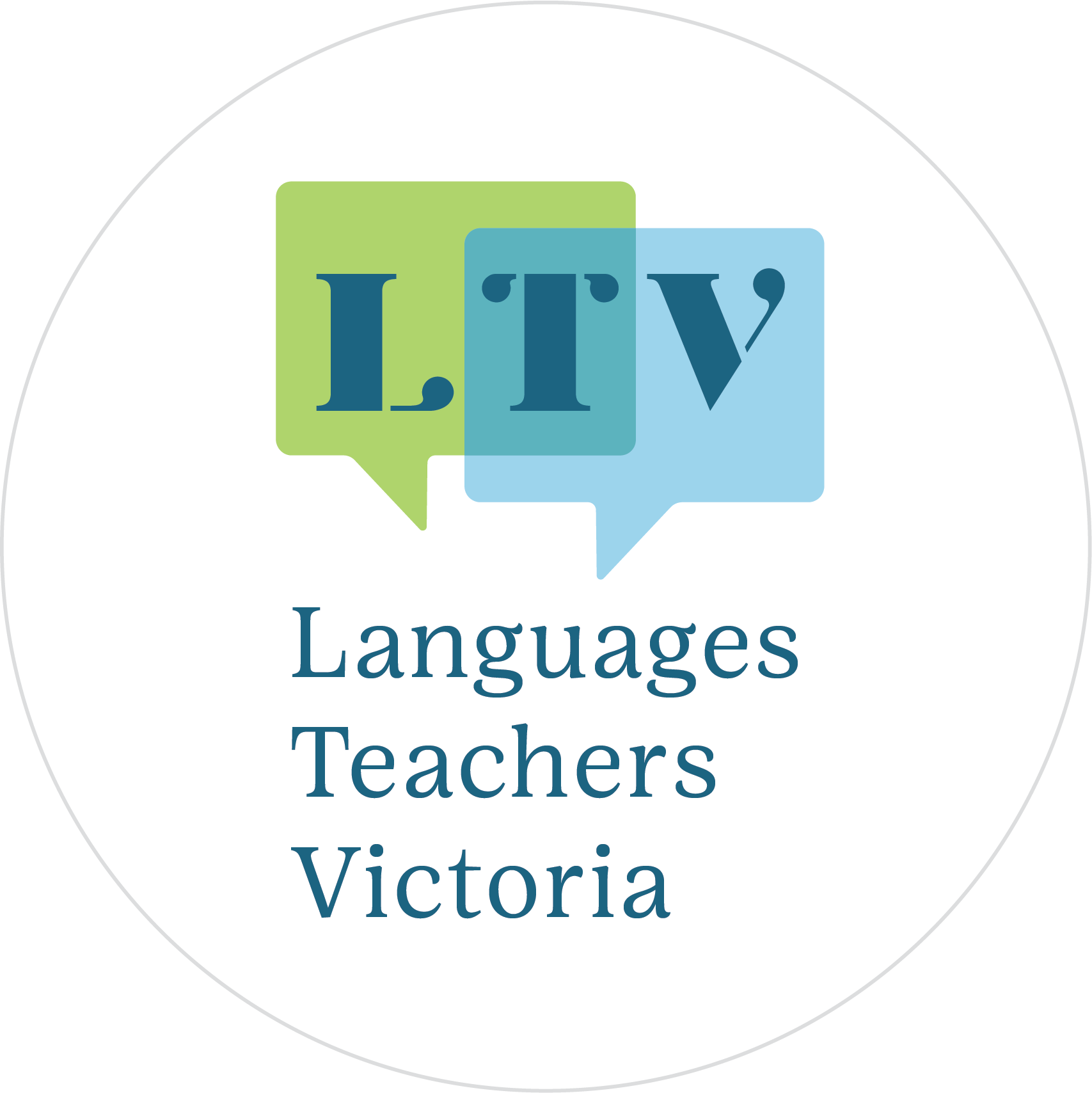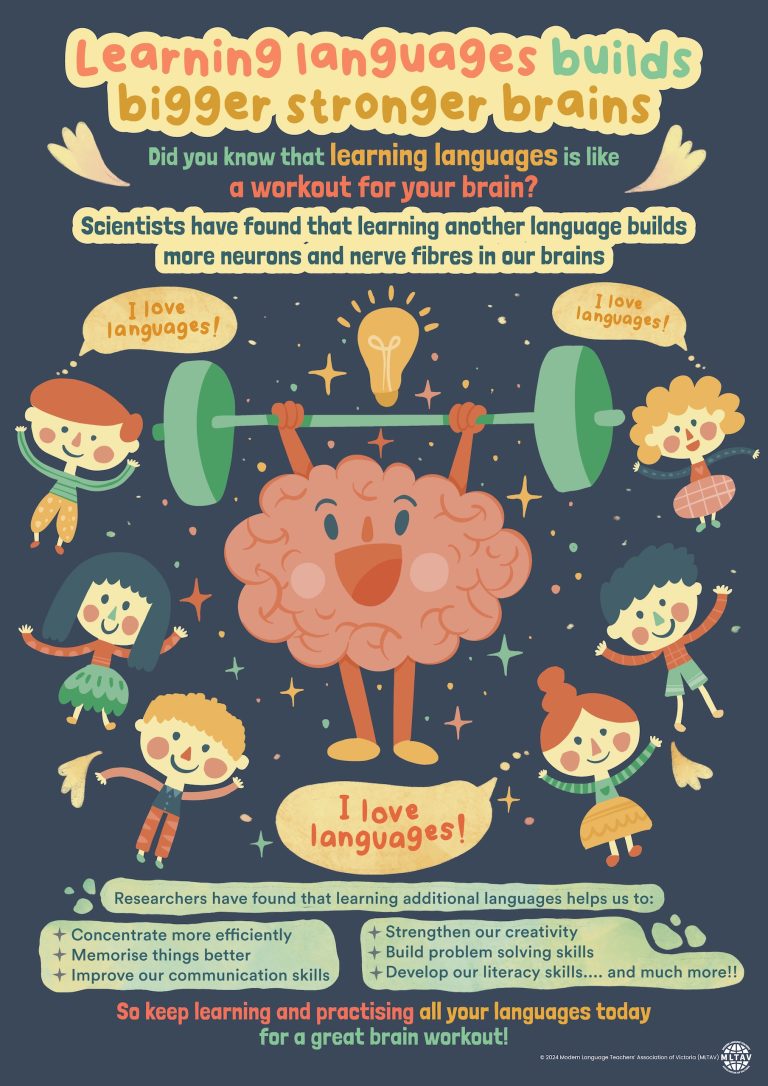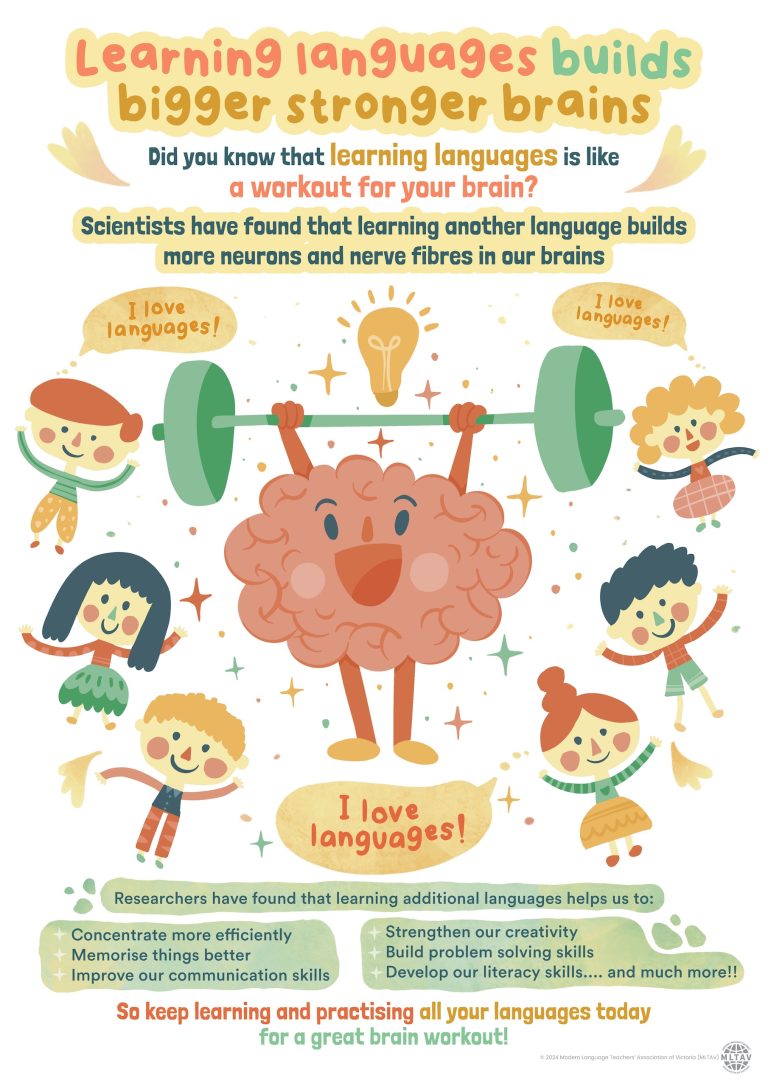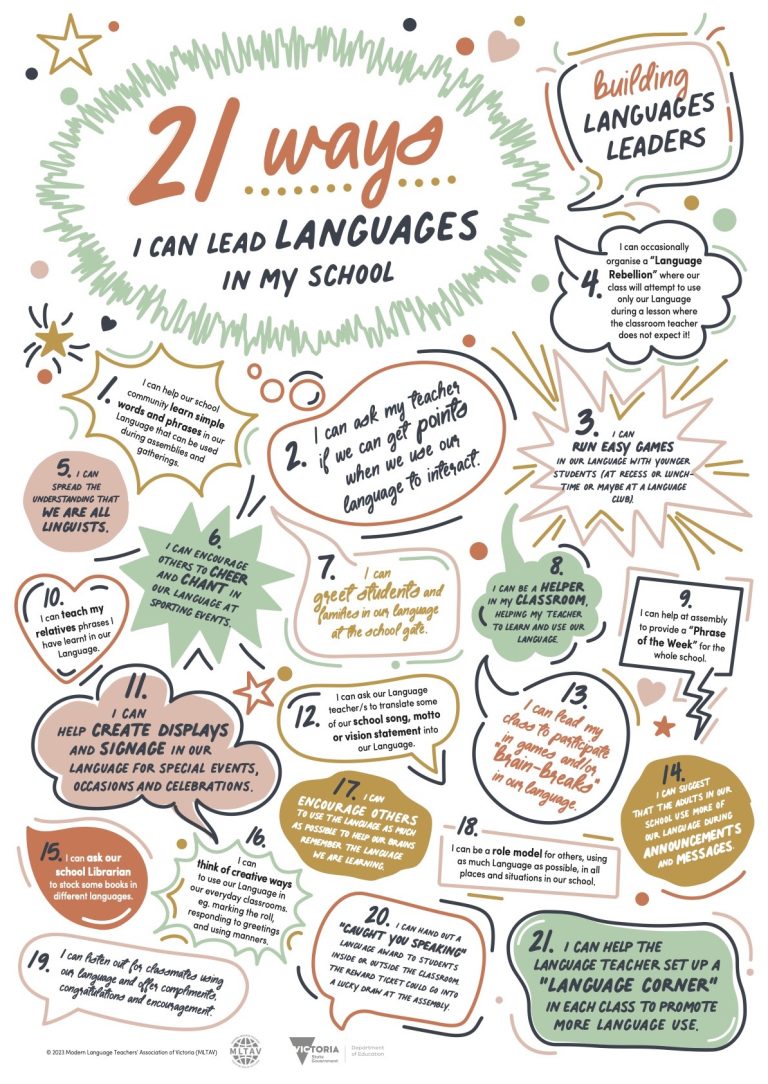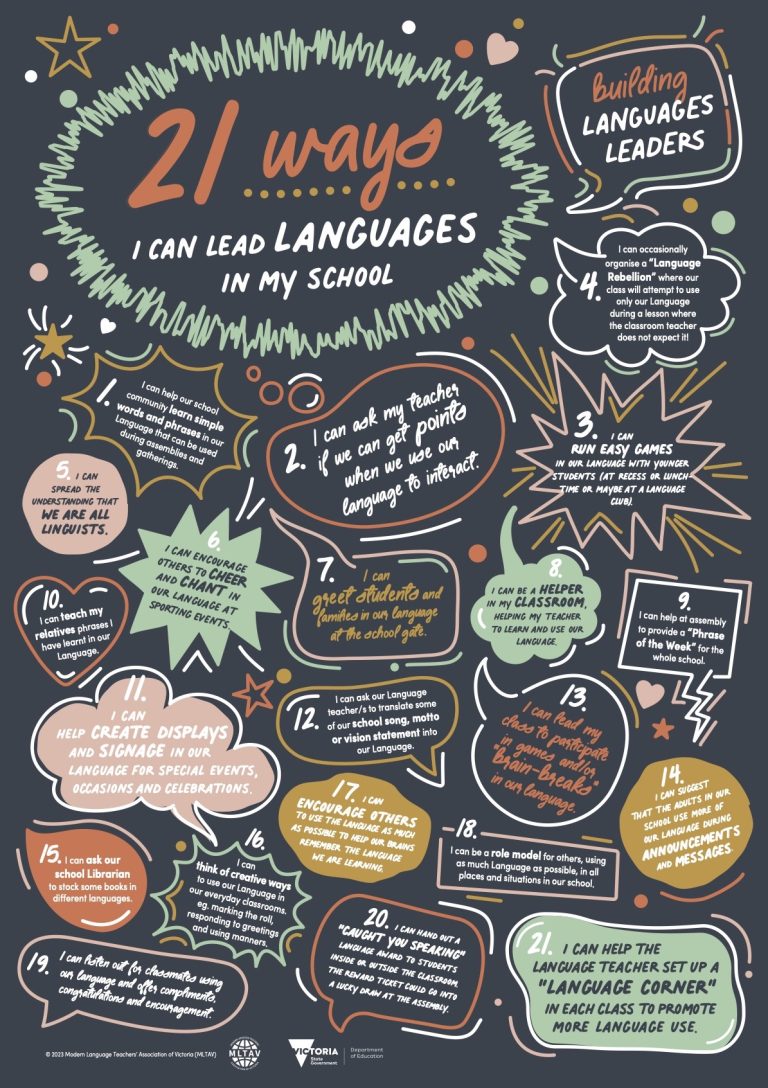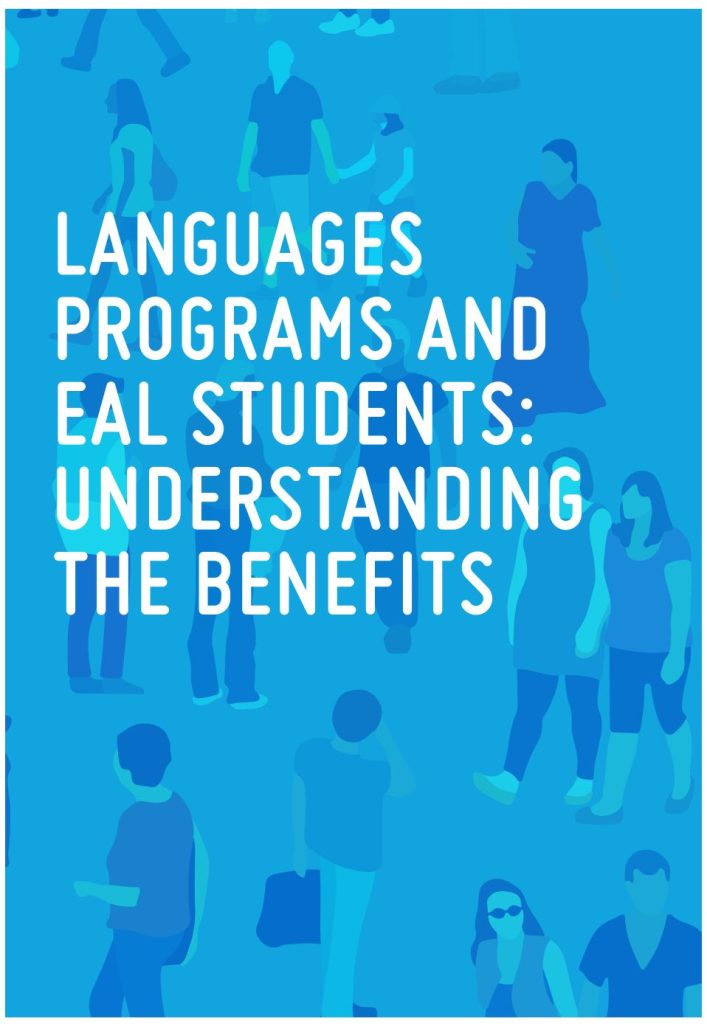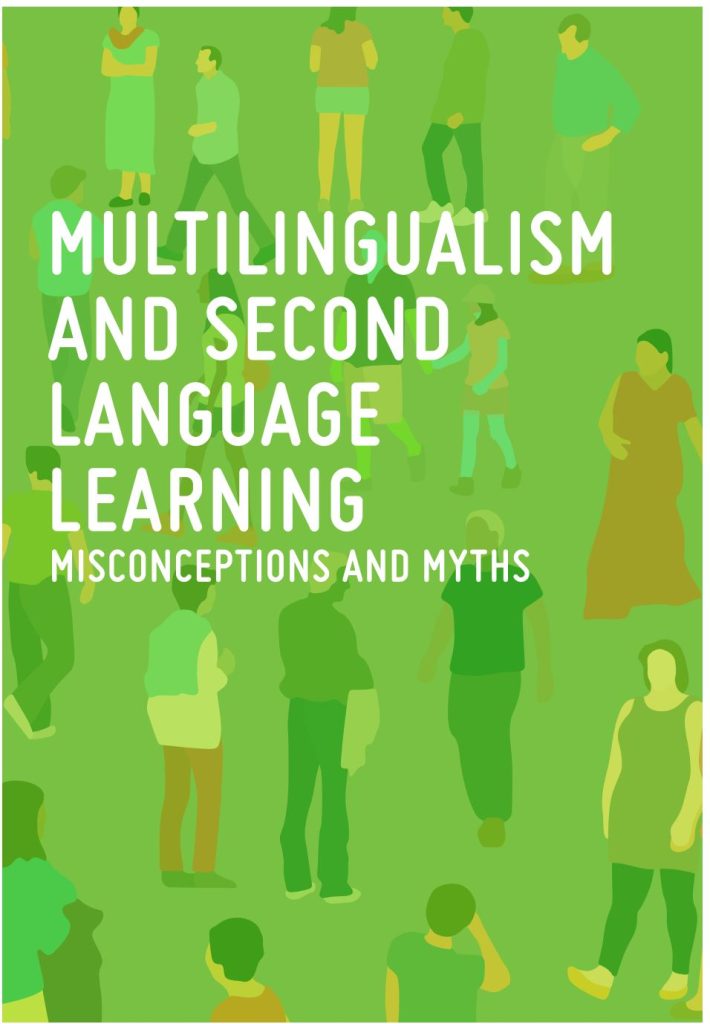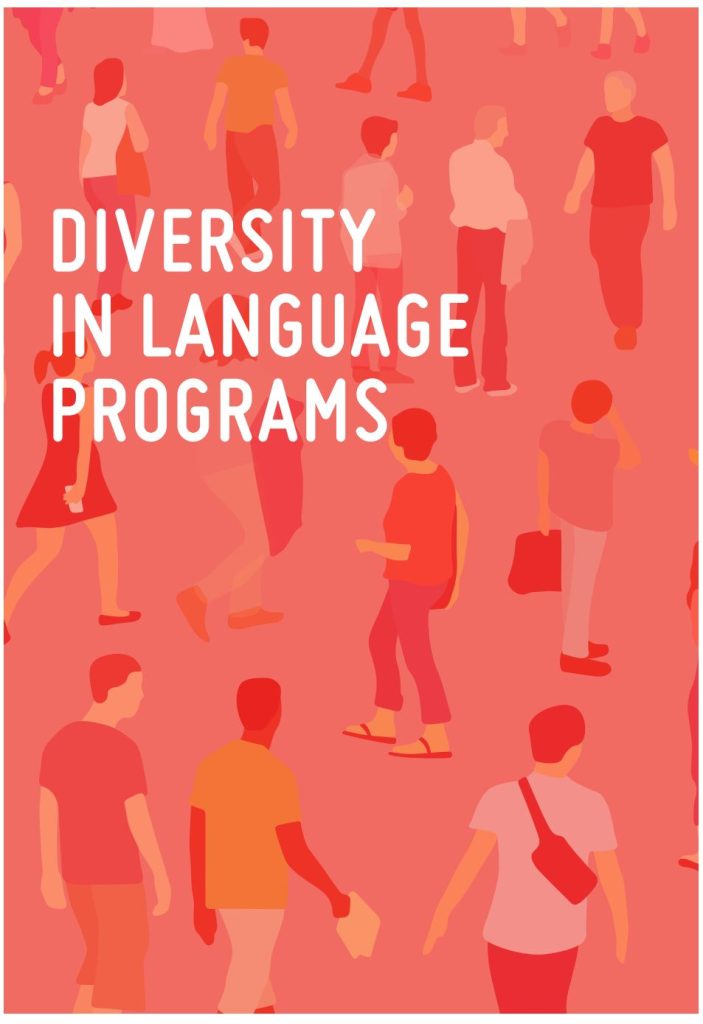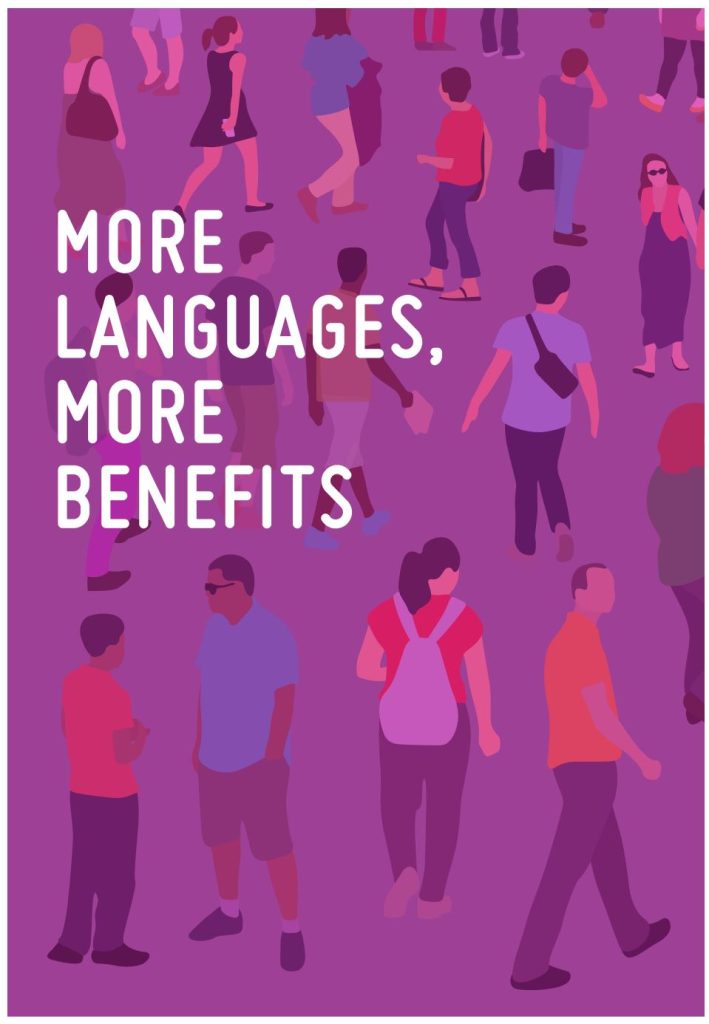Advocacy: Links to organisations and resources to support the advocacy and promotion of language learning

Learning Languages is Mindbendingly Good for You!
Download and display these posters to share with your students and with your wider school community
With thanks to Brunswick North West Primary School for the original poster concept
Student Languages Leaders
Involve your students in advocating for language learning and leading opportunities to learn and use languages in your school.
Download and display these posters to share with your Year 6 student Languages Leaders and encourage them to start implementing some of the 21 ways they can lead Languages
These resources were created as part of the LTV Building Languages Leaders project. This is an initiative funded by the Department of Education’s 2023- 2025 Victorian Challenge and Enrichment Series.
Bilingual Programs Enhance Literacy Skills
Common Misconceptions about Learning Bilingually by Dr Ruth Fielding draws on international research to dispel the myths about the negative impact of bilingual learning on literacy development. Click here to download a PDF of the resource.
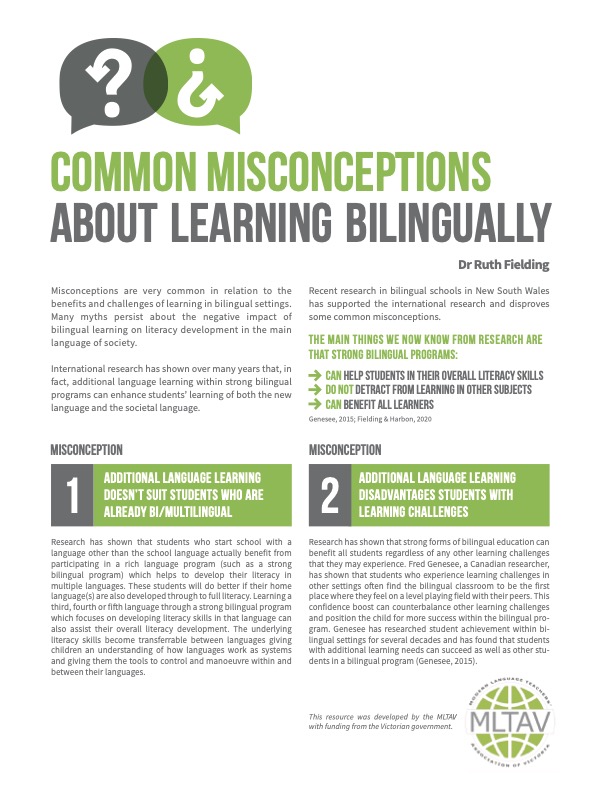
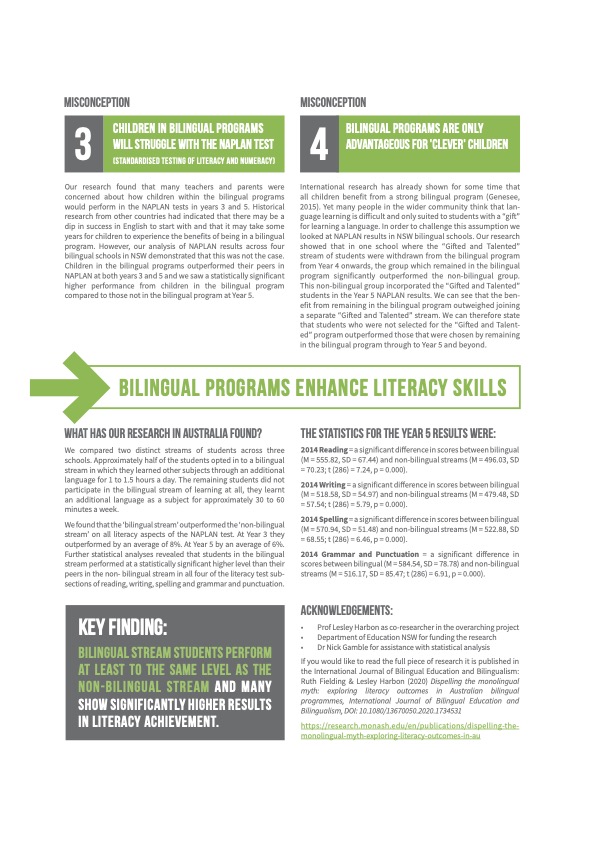
Victoria
- Victorian Department of Education and Training (DET) – Support for language programs, professional learning, school and curriculum support documents.
- Catholic Education Commission of Victoria (CECV) – Languages – Finding Your Voice: F-12 Strategy for Victorian Catholic Schools.
- Independent Schools Victoria
- Victorian Curriculum and Assessment Authority (VCAA) – Links to support the implementation of Victorian Curriculum and VCE.
- Victorian School of Languages (VSL) – Information about enrolment, publications and professional development.
Australia
- Australian Federation of Modern Language Teachers Associations (AFMLTA) – All LTV members are also represented at the national level by AFMLTA.
- Australian Curriculum, Assessment and Reporting Authority (ACARA)
- Languages Open the Door to a Bigger World this project was carried out on behalf of the Department of Education, Employment and Workplace Relations by the Asia Education Foundation (AEF) in partnership with the Australian Federation of Modern Language Teachers Associations (AFMLTA). It was funded as a national project through the School Languages Programme. The website:
- highlights the intercultural, intellectual and vocational benefits of learning languages to a range of key stakeholders
- reinforces existing positive attitudes to languages education and assist in culture change in schools and school communities where there are negative attitudes; and
- provides education authorities, schools and teachers with effective promotion and communication materials and products which can be used for a variety of purposes.
- Making Multicultural Australia for the 21st Century – one of Australia’s leading sources of quality educational resources on multiculturalism. Teaching resources and strategies to understand cultural diversity and tolerance. More than 3500 pages of articles, research, teacher guides, lesson plans, audio interviews, video clips, Australian multicultural artworks.
- Community Languages Australia – Australian Federation of Ethnic Schools and Associations (AFESA) – Information about enrolment, publications and professional development.
- Research Unit for Multilingualism and Cross-Cultural Communication (RUMACC), The University of Melbourne – Information about the Research Unit for Multilingualism and Cross-Cultural Communication, including a list of workshops offered in school programs.
- National Statement and Plan for Languages Education in Australian Schools 2005-2008.
United Kingdom
- The National Centre for Excellence for Language Pedagogy (NCELP, UK)
- Scotland’s National Centre for Languages
- Languages Work (CiLT, UK) – This website is the online information portal supporting a wide range of products designed to show the true value of languages in the workplace and beyond. The information is tailored to serve four key groups, from young student through to adults.
- Routes into Languages – The Higher Education Funding Council for England (HEFCE) agreed to fund a programme to encourage the take-up of language courses in England. The resources are particularly impressive, including a Why study Languages? website.
Europe
- European Union (EU): Education and Training – Languages – Interesting for comparing policies and strategies for promoting languages
USA
General
Information and links in this section were, to the best of our knowledge, accurate at the time of publication.
